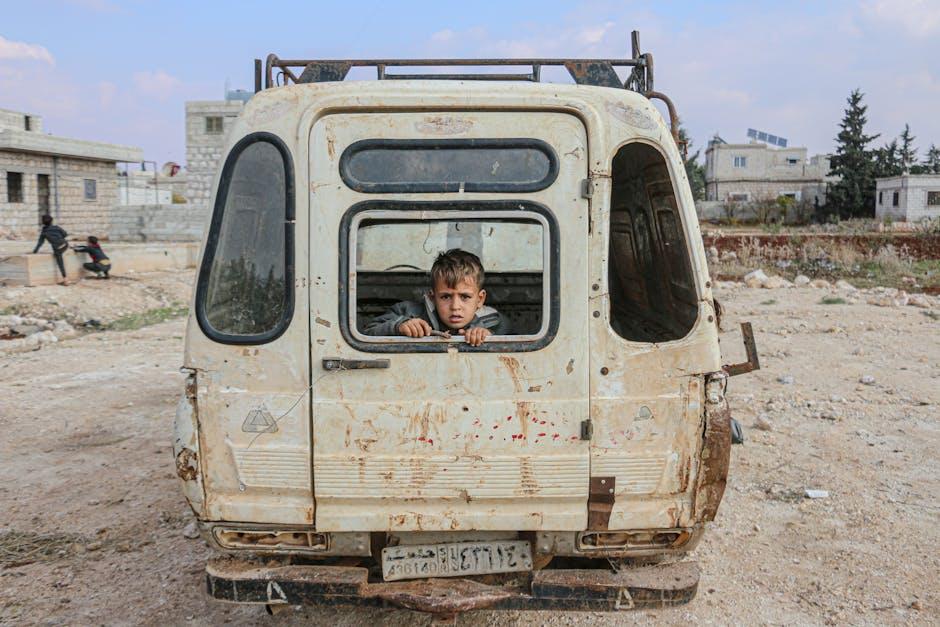In the sunlit corners of our childhood memories, family vacations often stand as cherished landmarks—joyful pauses from the everyday grind where laughter echoes against ocean waves or mountain peaks. Yet, beneath these idyllic snapshots lies a complex tapestry woven with threads of economic reality and social conscience. As families across the globe pack their bags, a critical conversation unfolds: Are these journeys mere escapes from financial hardship, or do they offer a protective shield, insulating young minds from the harshness of poverty? This article delves into the multifaceted nature of family vacations, exploring whether they serve as a balm for economic struggles or a sheltering cocoon, and how these trips can shape the perspectives and resilience of the next generation. Through a lens that balances empathy with inquiry, we invite you to explore the dual narratives of family vacations in a world where financial disparity is ever-present.
Balancing Fun and Financial Realities
When planning a family vacation, striking the right balance between enjoyment and financial constraints can feel like a tightrope walk. On one hand, the desire to create cherished memories and provide enriching experiences for children is paramount. On the other, the stark reality of financial limitations cannot be ignored. Families must navigate these waters thoughtfully, considering both the short-term joy and long-term financial health.
- Budget-Friendly Activities: Opt for local attractions or community events that offer entertainment without a hefty price tag.
- Off-Peak Travel: Traveling during off-peak seasons can significantly reduce costs, allowing for more flexibility in spending.
- Value Over Luxury: Prioritize experiences that foster bonding and learning over extravagant amenities.
Ultimately, the goal is to craft a vacation experience that is both memorable and financially prudent. By focusing on what’s truly important, families can enjoy their time together without the looming shadow of financial strain.
The Impact of Economic Hardships on Family Bonding
- Economic struggles often necessitate difficult choices, forcing families to prioritize essentials over leisure. This reality can deeply affect the family dynamic, altering the way members interact and support each other. Limited resources can lead to stress and tension, but they can also foster resilience and creativity in maintaining family bonds.
- Some families find that the absence of material abundance encourages deeper connections through shared experiences. Storytelling, home-cooked meals, and local adventures become cherished rituals that strengthen familial ties. The simplicity of these activities often reveals that the true essence of family bonding lies not in extravagant vacations but in the ability to find joy and togetherness in everyday moments.

Creative Budgeting Tips for Memorable Family Trips
Planning a family vacation on a tight budget doesn’t mean sacrificing fun or memorable experiences. Instead, it calls for a dash of creativity and strategic planning. Consider opting for destinations closer to home, which not only reduces travel costs but also opens up opportunities to explore hidden gems in your region. Many local attractions offer family discounts, especially during off-peak seasons, so timing your trip wisely can lead to substantial savings.
- Embrace the Great Outdoors: National parks and camping sites are fantastic options for cost-effective adventures. Not only do they offer stunning landscapes, but they also provide an array of activities like hiking, fishing, and stargazing that are often free or low-cost.
- Home Exchanges: Consider swapping homes with another family for a week. It’s a unique way to experience a new location while saving on accommodation costs.
- DIY Souvenirs: Encourage kids to collect natural treasures or create photo diaries during the trip. This not only saves money but also fosters creativity and personal connection to the places visited.

Nurturing Resilience in Children Through Travel Experiences
Travel offers a unique platform for children to build resilience by exposing them to diverse environments and cultures. When families travel, children learn to navigate new experiences, adapt to unexpected changes, and face challenges that might differ from their everyday life. These experiences foster adaptability, a crucial component of resilience, by teaching them how to manage the unfamiliar. Moreover, travel often presents situations where children must step out of their comfort zones, enhancing their problem-solving skills and boosting their confidence.
- Exposure to Different Cultures: Understanding and appreciating cultural diversity helps children develop empathy and open-mindedness.
- Problem-Solving Opportunities: Navigating new places encourages critical thinking and decision-making skills.
- Flexibility and Adaptability: Dealing with unexpected travel hiccups teaches children to be flexible and adaptable.
These travel experiences provide valuable lessons that help children become more resilient individuals. They learn that while challenges are inevitable, they are also surmountable, a perspective that serves them well throughout life. By traveling, families can actively participate in nurturing their children’s resilience, providing them with skills that extend beyond the confines of traditional learning environments.






























